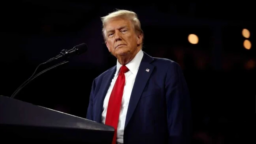Bandcamp is set to bring back “Bandcamp Friday” this week following three months of hiatus, and six months after the company was acquired by Epic Games, the maker of hit video game Fortnite and Unreal Engine.
The California-based D2C platform launched Bandcamp Fridays in early 2020 at the height of the COVID-19 pandemic when lockdowns impacted the earnings of indie artists from tours and shows.
In response, the company waived its share of revenue and donated all sales to artists for 24 hours on March 20, 2022.
The Bandcamp community spent $4.3 million on music and merch on that day, around 15 times more than the amount they spend on a normal Friday. The proceeds were all directed to artists. Bandcamp continued the initiative in the following first Fridays of every month after that.
In the 21 Bandcamp Fridays that followed, more than $78 million was paid to artists and labels, “helping cover rents, mortgages, groceries, medications, and much more,” according to a statement from Bandcamp co-founder Ethan Diamond published on August 22. Nearly 800,000 fans have participated in the Bandcamp Fridays program.
The next Bandcamp Friday will be on September 2, with the succeeding events scheduled for October 7, November 4 and December 2.
Diamond also says that, so far, nearly $1 billion has been paid directly to artists via the Bandcamp platform.
“If you’ve started to feel guilty about buying music on any other day of the month, here’s something to keep in mind: on Bandcamp Fridays, an average of 93% of your money reaches the artist/label (after payment processor fees),” Diamond wrote.
“If you’ve started to feel guilty about buying music on any other day of the month, here’s something to keep in mind: on Bandcamp Fridays, an average of 93% of your money reaches the artist/label (after payment processor fees).”
Ethan Diamond, Bandcamp
“When you make a purchase on any other day (as millions of you have, with close to $1 billion now paid directly to artists), an average of 82% reaches the artist/label. Every day is a good day to support artists on Bandcamp,” the executive added.
Bandcamp stopped providing updates on the next Bandcamp Friday after the most recent one that took place on May 6.
Around the same time, at the end of April, Epic Games filed a motion against Google, requesting a preliminary injunction to block the tech giant from removing the Bandcamp app from the Google Play store. It came as Google threatened to kick Bandcamp out of its app store if it didn’t adopt Google’s payment system for in-app purchases.
The two parties subsequently filed a Joint Stipulation in a Californian court on May 20, with Google agreeing to not remove Bandcamp from its app store. It followed another lawsuit that Epic took against Google and Apple for alleged anti-competitive practices after Fortnite was removed from their app stores due to alleged violations of policies on in-app payments.
The settlement of Epic and Google’s legal dispute over the Bandcamp app allowed Bandcamp to continue using its own payment system on its app (at least for now).
Established in late 2007, Bandcamp lets artists and labels set the prices for their music and physical merchandise, unlike Spotify’s royalties-paying model.
The direct-to-fan platform also offers a ticketed live streaming service called Bandcamp Live that automatically notifies fans when artists hold shows. It also features a virtual merch table where artists can display their merchandise and sell directly to fans. The platform started charging a 10% fee last year.
“We don’t pretend our ticketing service is free and then surprise your fans with a ‘convenience fee’ when they check out. You set your ticket price to whatever you want, and that’s what your fans are charged,” Bandcamp said at the time.Music Business Worldwide





